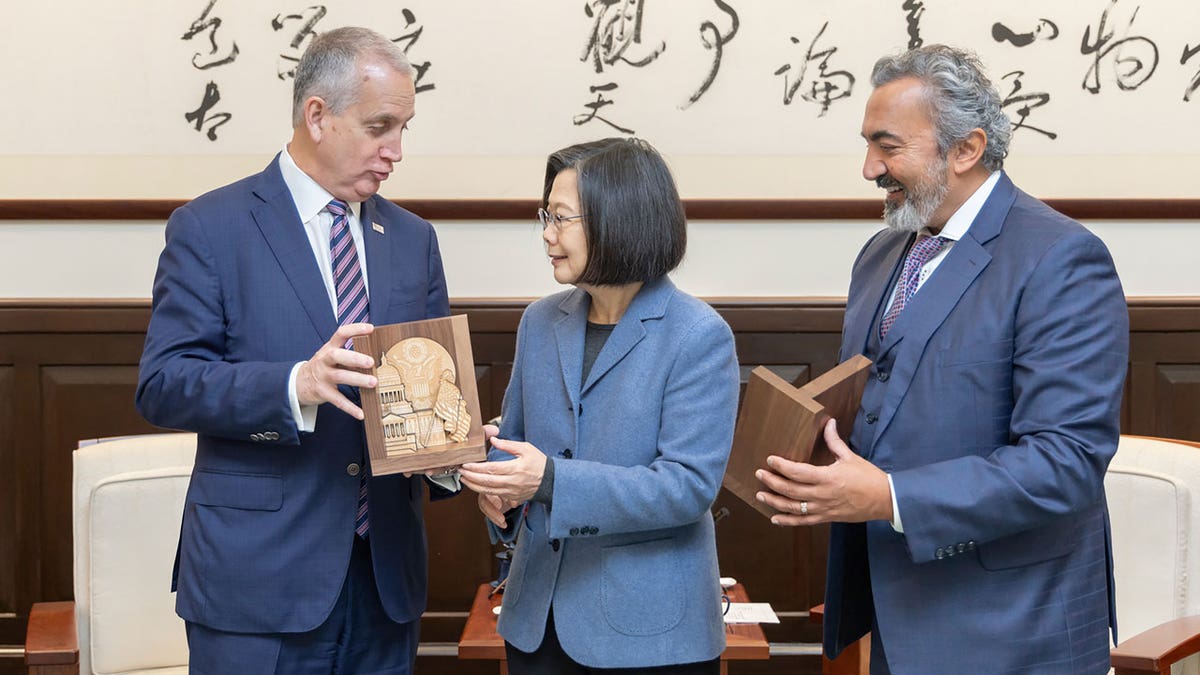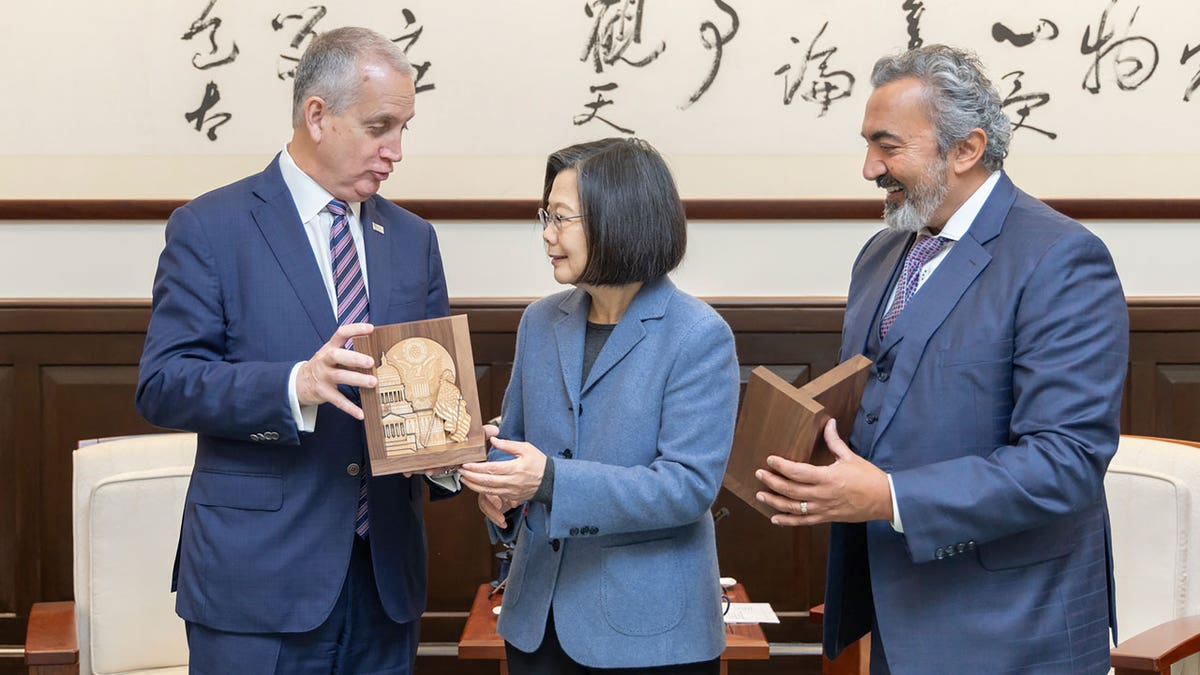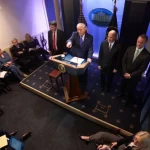
A bipartisan delegation from the United States Congress reaffirmed support for Taiwan during a visit Thursday following its election of a new president. The delegation’s visit is the first by U.S. lawmakers to the island since the independence-leaning Democratic Progressive Party won a third-straight term in the Jan. 13 election.
China, America’s chief competitor for global influence, claims Taiwan as its own territory and threatens to use force to bring the self-governed island under its control. Beijing strongly condemned Lai Ching-te’s election and appears set to continue its policy of refusing to engage with the island’s government — a practice that’s been in place since outgoing President Tsai Ing-wen’s election in 2016.
“The support of the United States for Taiwan is firm. It’s real, and it is 100% bipartisan,” U.S. Representative Mario Díaz Balart said.
TAIWAN’S ELECTIONS WERE A BIG SUCCESS. JUST ASK XI
Balart, a Florida Republican, was joined by California Democrat Ami Bera. “In the 21st century, there’s no place for aggressive action. We have to learn to live together, to trade together, to work together, to solve problems together,” Bera said.
“Just know that we are proud of the people of Taiwan. We are proud of the relationship, and as strong as that relationship has always been. That is assured. It will even be stronger,” Balart said.
“So, we look forward to working together to continue to protect the peace, prosperity (and) the future of Taiwan. It’s up to people of Taiwan,” Bera said.

Taiwan President Tsai Ing-wen, center, exchanges gifts with U.S. Rep. Mario Diaz-Balart, R-Fla., left, and Rep. Ami Bera, D-Calif, right, in Taipei, Taiwan on Jan. 25, 2024. (Taiwan Presidential Office via AP)
President-elect Lai thanked the visiting co-chairs of the U.S. Congressional Taiwan Caucus for their visit, saying that “today’s Taiwan is a Taiwan of the world.”
Lai also touched on continued military assistance from the U.S. and a proposed agreement to avoid mutual taxation of companies.
Beijing objects to any form of official contact between the U.S. and Taiwan. In 2022, it responded to a visit by then-House Speaker Nancy Pelosi with some of its largest military maneuvers in years, including missile launches and a simulated blockade of Taiwan. It views visits by foreign government officials as a recognition of the island’s sovereignty.
President Joe Biden, seeking to calm that complaint, insists there’s no change in America’s longstanding “one-China” policy, which recognizes Beijing as representing China but allows informal relations and defense ties with Taiwan.
Washington cut formal diplomatic relations with Taiwan in 1979 in order to recognize China, but U.S. law requires it to ensure the island has the ability to defend itself. That has translated into a heavy reliance by Taiwan on U.S. military hardware and a law saying that Washington must treat threats against the island as a matter of “grave concern.”
China regularly sends warplanes and navy ships to intimidate and harass Taiwan, with 18 planes and six ships operating near the island in the 24 hours before 6 a.m. Thursday. Three Chinese balloons were recorded as crossing the island, although it remains unclear whether they have a military or intelligence gathering purpose.
CLICK HERE TO GET THE FOX NEWS APP
“We understand the pressures and the type of coercion of the Chinese Communist Party, and yet the Taiwanese people spoke loud and clear,” Balart said at a late Thursday news conference. “Taiwan is a beacon of hope and of life and of freedom and of democracy and it is such a direct contrast to what we’re seeing coming from the Communist Party of China.”
Bera said Taiwan’s future “should not be dictated by any external power. But the future of Taiwan is up to the people of Taiwan.”
The U.S. does not want to change the status quo between China and Taiwan, but “we have to respond to external pressures and others that potentially are changing that status quo,” Bera said. “It’s about seeking peace, prosperity and the right to your own future.”








